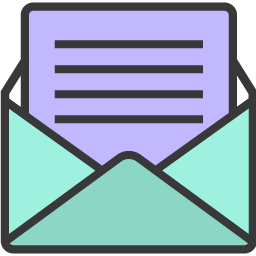Event planning is a dynamic and rewarding career that combines creativity, organization, and problem-solving. Every day brings new challenges, new clients, and new opportunities to create memorable experiences. But what exactly does a typical day look like for an event planner? Whether you’re considering a career in this field or just curious, this guide will walk you through the day-to-day life of an event planner.
Morning: Planning and Communication
Most event planners start their day early, reviewing their schedule and priorities. The morning usually begins with checking emails and messages to catch up on client updates, vendor confirmations, or any urgent issues. Communication is key in event planning, so a significant part of the morning is dedicated to responding to emails and making phone calls.
After clearing your inbox, you might have a team meeting or conference call. This helps coordinate efforts, discuss upcoming events, assign tasks, and ensure everyone is on the same page. Whether you’re working solo or as part of a larger team, clear communication sets the tone for the day.
You’ll also spend time reviewing event timelines and budgets. This includes updating project management tools like Trello or Asana to track progress and deadlines. Planning ahead ensures that no detail is overlooked and that the event runs smoothly when the big day arrives.
Midday: Vendor Coordination and Site Visits
By mid-morning or early afternoon, event planners often shift their focus to working with vendors and suppliers. This could involve negotiating contracts, confirming deliveries, or arranging for equipment rentals. Maintaining strong relationships with reliable vendors is essential to keep events on track and within budget.
If an event date is approaching, a site visit might be on the schedule. Visiting the venue allows you to inspect the space, meet with venue staff, and visualize the layout. This helps in planning everything from seating arrangements to décor placement and technical setups like lighting and sound.
During site visits, event planners also check logistical details such as parking, accessibility, and emergency exits. These considerations are critical to ensuring a safe and comfortable experience for attendees.
Afternoon: Creative Work and Client Meetings
Afternoons are often reserved for creative tasks and client interactions. You might be designing mood boards, choosing color schemes, or selecting themes to make the event unique and memorable. Tools like Canva or Pinterest are popular for gathering inspiration and presenting ideas to clients.
Client meetings, whether in person or virtual, are a major part of the day. These meetings are opportunities to discuss progress, address client questions, and refine event details. Listening carefully to client needs and preferences helps build trust and ensures the event matches their vision.
Some afternoons may also involve marketing tasks, especially if you’re running your own event planning business. This could include updating your website, managing social media accounts, or creating promotional materials for upcoming events.
Late Afternoon: Problem-Solving and Final Preparations
Event planning is unpredictable, so the late afternoon often requires quick thinking and problem-solving. Last-minute changes might come in, such as vendor cancellations, weather issues, or client requests. Being adaptable and calm under pressure is a vital skill for any event planner.
You may also spend this time finalizing details for upcoming events. This includes confirming final guest counts, printing materials like name tags or programs, and organizing supplies for transport to the venue. Preparing detailed checklists and timelines helps keep everything organized.
For events happening soon, you might also conduct rehearsals or walkthroughs with the team to ensure everyone knows their responsibilities. This preparation reduces stress on the actual event day and helps everything run smoothly.
Evening: Event Execution or Reflection
If you’re working on a day-of event, your evening may be fully dedicated to event execution. This can mean arriving early at the venue to oversee setup, coordinating vendors, managing the event flow, and troubleshooting any issues that arise. The event planner’s role during the event is to make sure everything happens as planned while keeping guests happy and clients reassured.
After the event, you’ll often spend time reflecting on what went well and what could be improved. Writing notes, collecting feedback from clients and vendors, and updating your portfolio with photos and testimonials are all part of closing the event successfully.
If you don’t have an event that day, evenings are a great time for professional development. Many planners use this time to take courses, attend networking events, or read industry publications to stay current on trends and best practices.
The Reward of a Varied and Exciting Career
No two days are exactly the same in event planning. The variety keeps the work exciting and continuously challenges you to grow your skills. From creative brainstorming to managing logistics and client relationships, event planners wear many hats every day.
While the job can be demanding, the reward of seeing your vision come to life and creating unforgettable experiences for clients makes it worthwhile. If you enjoy working with people, love organization, and thrive in a fast-paced environment, a career in event planning might be the perfect fit.
